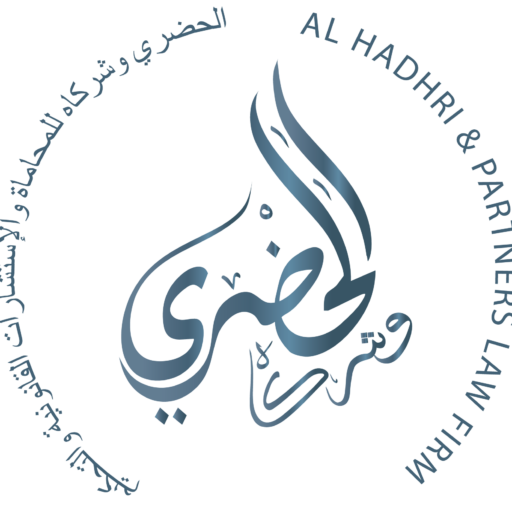Due to the increment of the public expenditure, the taxes are of great importance in contemporary societies, especially, in the countries that are struggling with scarcity of economy resources, here comes, the importance of the taxes as main source of the general revenues these days.
Taxes are one of the most important sources used by the state in its fiscal policy, to achieve the goals it seeks, whether economic, social or developmental, and taxes are the main supporter of the state budget to be able to provide the funds it needs to address its economic issues, as taxes, whether direct or indirect, are an important and main tool of fiscal policy for any country to solve its economic issues.
In order to identify the role of the Anti-Money Laundering and Combating the Financing of Terrorism Act of 2019 and its role in reducing the crime of tax evasion, there is a need for a simple preface that address the definition of the crime of money laundering, which is among the list of organized transnational crimes.
Transnational organized crime is considered a threat to international peace and security, and transnational organized criminal activities in recent years include several areas, including money laundering, terrorist activities, trafficking in prohibited weapons or drugs, antiquities smuggling, carjacking, and other crimes committed by terrorist groups. Money laundering has several levels, including deposit, camouflage and integration, and because it is dirty money that needs to be purified, due to the fact that it does not come from real projects or businesses, but is integrated into the economic system without progression, and therefore prevents countries from taxing it.
And because it is a cross-border crime, the United Nations Organization has paid great attention to it, so it held several conferences that represent international efforts, such as the Geneva Conference in 1975 for the prevention of crime and the treatment of criminals, as well as the Caracas Conference in 1980, the Milan Conference in 1985, the Havana Conference in 1990 and the Cairo Conference in 1995, another in Vienna in 2000, Bangkok 2005 and El Salvador 2010, and the interest of countries and the United Nations in holding many conferences was noted due to the seriousness of the crime.
Due to its dangerousness as a transnational crime, it is characterized by the most important features and characteristics, it is gradual organization and structural construction, collective planning, continuity, transnational scope, use of illegal means, and its goal is profit and money-making.
The seriousness of the money laundering crime is represented by the exit of cash flows outside the economic system, which deprives countries of good economic planning that leads to knowing how to implement important projects. Among the effects of the money laundering crime is the crime of tax evasion, which is defined as (a set of legal, accounting or physical organizations to avoid paying tax).
Dr. Mohamed Al-Saeed Wahba – In his book-talked about tax evasion as an attempt by the taxpayer not to pay the tax and escape it completely or partially. In order to curb tax evasion, countries have issued measures in the form of legislation and its application, and the State of Qatar has issued several laws dealing with these crimes, including the Anti-Money Laundering and Combating the Financing of Terrorism Law of 2019.
Many of its articles refer to these measures in Article (6) …. Financial institutions and specified non-financial businesses and professions must take into account the risks identified at the national level and any other influential factors when conducting a risk study. Article (9) of the same law stipulates that: “Financial institutions and specified non-financial businesses and professions are prohibited from maintaining anonymous accounts, or accounts with clearly fictitious names.” While the Article (20) of the aforementioned law deals with an important measure in curbing tax evasion, it states that Financial institutions and specified non-financial businesses and professions must keep all records, documents, documents and data for all local and international transactions and operations for at least ten years from the date the transaction or operation was concluded. The fourth chapter of the law deals with the customs declaration, which is one of the effective means of restricting tax evasion because it includes a large and important disclosure.
Chapter 6 of the law also establishes an independent unit called the Financial Information Unit, which is one of the units that performs important analysis and by default, sends its results to the competent authorities or upon request, which helps in early detection so that the competent authorities can collect taxes.
In addition, the law also establishes supervisory body represented a unit under the Qatar Central Bank and a punitive body in form of the Public Prosecution.
If we review the aforementioned law, we find that it has followed several guidelines to reduce tax evasion, including preventive methods represented in the enactment of laws, including the Money Laundering and Terrorism Financing Law of 2019, which obliges institutions, especially financial institutions, to activate the role of their risk management, prohibit the maintenance of anonymous accounts and oblige them to maintain their own account records, make the customs declaration system an important matter, and establish an independent unit called the Financial Information Unit, which plays a crucial role in reducing tax evasion, and the National Committee to Combat Money Laundering and the Financing of Terrorism under the Central Bank, which consists several representatives among of them representative of General Taxes authority. The measures also include measures related to the powers of the public prosecution to conduct independent investigations or follow up on existing investigations into other crimes.
Considering all the measures, we realize that the law has tightened the limitation of manipulation and defined the handling of funds so that money laundering is not practiced, and this makes it easier for the public authority to accurately determine taxes and not evade their performance.

